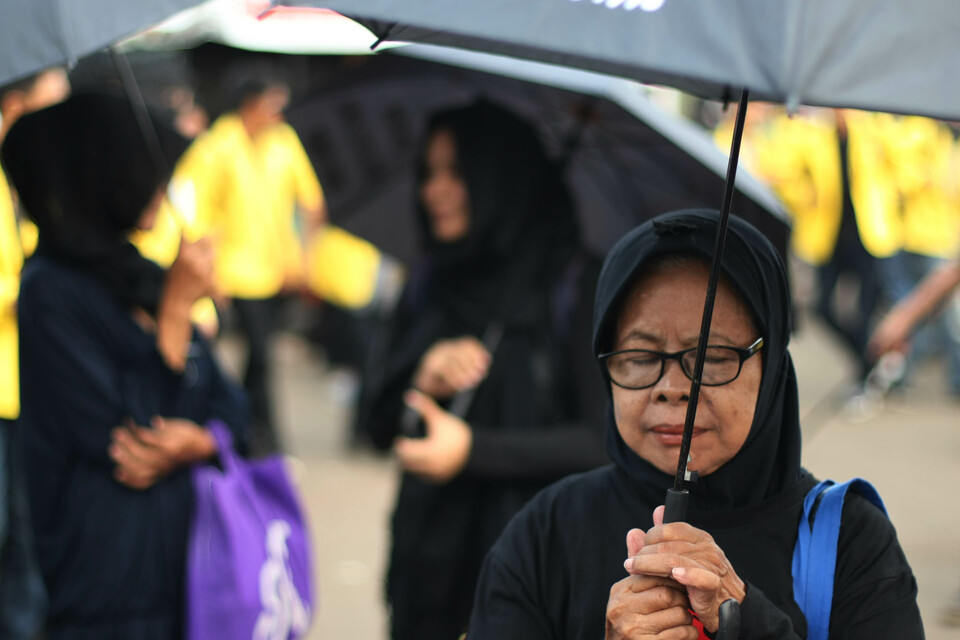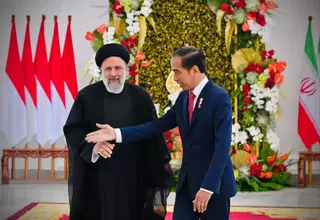Commentary: Indonesia's Forgotten Coffee Murder Case

There is something about the mysterious death of 27-year-old Wayan Mirna Salihin that captures people's imagination so much that when the Jakarta Police announced that they finally had a suspect – Mirna's own friend Jessica Kumala Wongso – people went to social media expressing jubilation, rejoicing at the prospect that whoever is responsible will be closer to facing justice.
Mirna died after drinking an iced coffee at a posh cafe inside an equally upscale Grand Indonesia shopping mall.
We could thank Mirna's father for giving doctors permission to perform an autopsy on Mirna's body, a crucial part of any murder investigation but something that many Indonesians consider taboo.
Without the autopsy we could never have guessed that there was a high-enough concentration of cyanide in her stomach to kill dozens of people and her killer would roam free.
Then there's Jessica, the friend who arrived nearly an hour early and ordered and paid for Mirna's Vietnamese ice coffee drink. From day one, people were quick to assume that she might be behind the killing, as she does not behave like a typical grieving friend.
After her arrest, the Internet is flooded with conspiracy theories and speculation about the possible motive, from the plausible to the bizarre. There are also arguments between experts who reject the theory that Jessica is the real killer. Not to mention the countless memes featuring Jessica's photo and the text: 'Let's Grab a Coffee!'
Perhaps it is the way Mirna's life was cut short at such a young age which fascinates a lot of Indonesians. Or that her untimely death came just mere weeks after she got married to a friend she met while studying in Australia, a young man named Arief Soemarko. Or is it the fact that she was one of a pair of twins (she has a twin brother named Sendy Salihin) which captivates many Indonesians? Or perhaps it is all of the above.
Whatever the reason, we can thank the Internet for keeping the conversation alive, fueling our fascination with the gruesome murder of a young woman. Activists can only wish that the Internet had been a greater part of our daily lives back in 2004, the year when human rights defender Munir Said Thalib was assassinated.
Munir died on Sept. 7, 2004, on board a Garuda Indonesia flight to Amsterdam as it flew over Budapest. Hours before his death, as the plane made a short stop in Singapore, Munir was offered a cup of coffee by Pollycarpus Budihari Priyanto, an off-duty Garuda pilot and suspected State Intelligence Agency (BIN) operative, who laced the coffee with a lethal dose of arsenic.
Pollycarpus was sentenced to 14 years in prison after the Central Jakarta District Court, on Dec. 1, 2005, found him guilty of murdering Munir.
But those who masterminded the murder, giving Pollycarpus his orders, remain beyond the reach of the law.
An independent fact-finding team, established by then-president Susilo Bambang Yudhoyono in November 2014, found that immediately prior to and after Munir’s death, Pollycarpus had communicated extensively with Muchdi Purwoprandjono, who at the time was a deputy chief of the BIN.
In their court testimonies, several intelligence officials also said that Pollycarpus often visited the BIN headquarters and met behind closed doors with Muchdi. In at least one of those meetings, Abdullah Mahmud Hendropriyono, the BIN chief at the time, was also present.
The South Jakarta District Court, however, acquitted Muchdi of all charges on Dec. 31, 2008, despite the judges hearing in Pollycarpus’s trial ruling that Pollycarpus had acted on Muchdi’s instructions. Hendropriyono was never charged.
A fearless man
Munir was a fearless human rights defender who was not afraid to speak out for victims of injustice even during former president Suharto's New Order regime, when activists were often jailed or kidnapped.
Without Munir, we would have remained blinded by the fact that for years the military was involved in some of the world's worst mass killings, forced disappearances, running protection rackets for big businesses and criminals without fear of prosecution.
He had helped uncover the murder of labor activist Marsinah, who was kidnapped and murdered by the military for demanding her company to obey the local minimum wage requirements in 1993. He had also represented Suharto's critics and political foes and unraveled the kidnapping and torture of 23 students and activists in 1997 and 1998 -- one has been confirmed dead and 13 are still missing and presumed killed.
Munir investigated the massive loss of civilian lives following the 1999 referendum in East Timor as well as gross human rights violations in the restive areas of Papua and Aceh.
Given these achievements, it would be fitting that the government unravel the truth behind his death or at the very least honor him by carrying on his important work.
Instead, the government did the opposite. The people Munir was fighting against, those he accused of gross human rights violations, now hold powerful positions in Joko's administration.
Hendropriyono, the man linked to but never charged for Munir's murder, the former military officer Munir accused of being responsible for the massacre of 27 civilian protesters in Talangsari, Lampung, in 1989, served as an adviser to the president during his 2014 campaign.
Wiranto, the former military chief believed to have been responsible for the deaths of thousands in the aftermath of the 1999 East Timor secession from Indonesia, is now the leader of a party in Joko's coalition, the People's Conscience Party (Hanura).
The president has also named as his defense minister retired general Ryamizard Ryacudu, who led several military campaigns in Aceh and Papua that resulted countless civilian casualties.
The current intelligence chief, Sutiyoso, also a chairman of a party in Joko’s coalition, the Indonesian Justice and Unity Party (PKPI), was the commander of the Jakarta Military Command when his men carried out a deadly military raid in front of the Indonesian Democratic Party (PDI) headquarters in 1996 to oust then-chairwoman Megawati Soekarnoputri.
Megawati, the daughter of Indonesia's first president Sukarno, who was ousted after the 1965-66 massacre of suspected Communist members and sympathizers, eventually set out to form her own party: the Indonesian Democratic Party of Struggle (PDI-P) of which Joko is a member.
In June, the government announced it would establish a “reconciliation commission” to seek a “permanent solution for all unresolved human rights abuses,” which Munir had spent his lifetime to uncover.
But it seems the focus of the commission is to seek compensation for victims and not to bring those responsible to justice. Joko's administration has also refused to reopen Munir's murder case and instead provided a parole for the person convicted of poisioning Munir, Pollycarpus, on Nov. 28, 2014.
Munir has given up so much for the country, even his life, fighting for countless victims of injustice despite the constant death threats he and his family received.
We, the powerless, can only voice our anguish through articles and social media posts, through weekly rallies known as “Kamisan” in front of the State Palace every Thursday and immortalize the legend that is Munir in murals, T-shirts and books, wishing that the true killers of Munir will some day face justice.
Meanwhile, the powerful say and do nothing, not even three of the student activists who were kidnapped in 1997-98 who have now become some of the country's top politicians.
It is through his work that we as a nation realize that we must not let this country again fall under military rule.
Munir has inspired us to speak up and fight. He had helped us realize that injustice, no matter how puny must not be tolerated, which also means that the killer of an innocent, young newly-wedded woman must not walk free, whoever it may be.
Nivell Rayda is a news editor at the Jakarta Globe and author. The views expressed are his own.
Tags: Keywords:POPULAR READS
KPK Identifies Sidoarjo Regent as Suspect in Corruption Probe
KPK has identified Ahmad Muhdlor Ali as a suspect in a corruption case involving the Sidoarjo Regional Tax Service AgencyEconomic Concerns Overshadow Security Worries for Indonesians in Iran
Indonesian citizens currently in Iran are more concerned about rising inflation than the security situation in the country.IDX Slides 2 Percent as Geopolitical Conflict Rattles Market Confidence
The IDX attributed the subdued performance of the index at the start of the week to the escalating geopolitical tensions in the Middle EastRupiah Declines Against Dollar Amid Geopolitical Unrest
The Indonesian rupiah depreciated against the US dollar in Tuesday's trading session, driven by escalating tensions between Iran and IsraelNasdem Vows to Honor the Constitutional Court Ruling on 2024 Presidential Election Dispute
Nasdem's Willy Aditya commits to respect the Constitutional Court's ruling on the 2024 presidential election dispute.Popular Tag
Most Popular






















